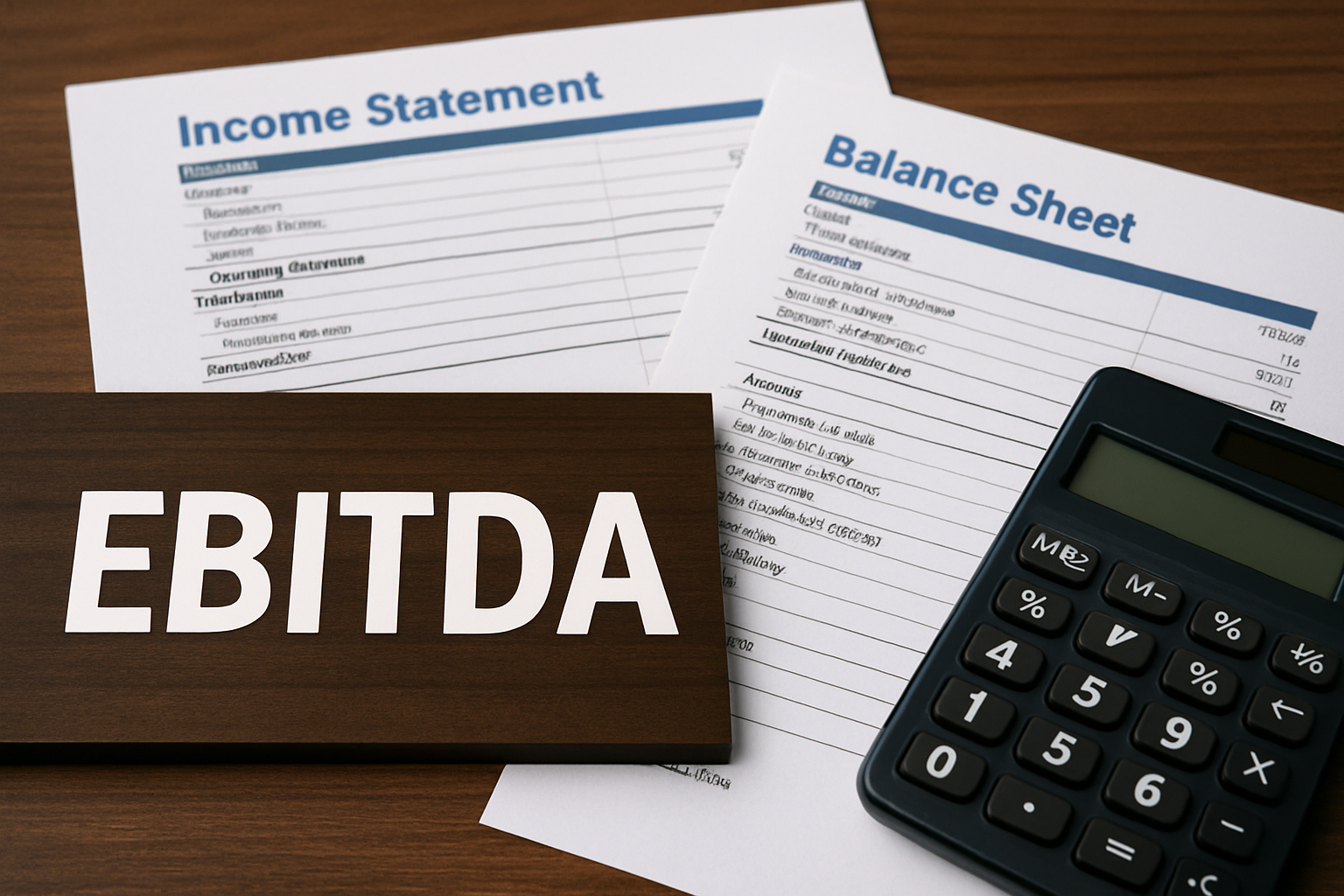Why Eucalyptus is the Best Bench Alternative

As tax season looms, small business owners across the U.S. are scrambling after the sudden closure of Bench.co, which left 35,000 customers without bookkeeping or accounting support. This abrupt shutdown highlights a critical risk: when a firm built on venture capital runs into trouble, the impact can ripple through your business at the worst possible moment.
If you’re a former Bench customer looking for stability and expertise, Eucalyptus is here to help. We’re a world-class managerial accounting firm built to support small businesses like yours—not just for today, but for the long haul. Visit our dedicated landing page to learn more about why former Bench customers have chosen us as their trusted partner.
Why Eucalyptus Stands Apart
- Expertise You Can Trust. At Eucalyptus, we don’t outsource your work overseas or rely on entry-level staff. Every member of our accounting team is a U.S.-based senior professional with years of experience. That means we bring deep expertise to your books, taxes, and financial strategy.
- Stability You Can Count On. Eucalyptus isn’t a venture-backed experiment. We’re a customer-first accounting firm that prioritizes relationships over rapid growth. Our remote-first model and commitment to hiring top-tier talent ensure that we’re always here when you need us.
- Customized Service for Small Businesses. We understand that no two small businesses are alike. Our tailored approach meets you where you are, whether you need daily bookkeeping, tax planning, or CFO-level insights. This flexibility has earned us glowing reviews from former Bench clients who appreciate our high-touch service.
What Former Bench Customers Say About Eucalyptus
Bench customers who transitioned to Eucalyptus have shared how relieved they are to work with a team that genuinely cares about their business.
Nicole S., one of our clients who came to Eucalyptus from Bench, said: "The accuracy of the books and how I run my business is exponentially better." She, like many others, has praised our proactive communication, always accurate and timely reporting, and ability to demystify complex financial topics.
One common theme: peace of mind. Knowing that a seasoned professional is handling your books allows you to focus on running your business, especially during tax season.
Is Kick the Right Move? Consider the Risks.
Bench’s closure is a stark reminder of how fragile tech startups can be. Kick, the firm Bench recommends, may seem like an easy transition, but for small business owners who can’t afford another disruption, it’s worth asking: What safeguards are in place to ensure Kick won’t meet the same fate?
At Eucalyptus, we offer more than technology. We offer a human connection. Our clients don’t just get a dashboard—they get a dedicated expert who knows their business and is committed to helping it succeed. That’s why Eucalyptus is the smart, stable choice.
How to Get Started with Eucalyptus
Our onboarding process ensures a seamless handoff of your financial records, so there’s no gap in service. And with tax season fast approaching, our team is ready to help you prepare for the year ahead.
Here's how it works:
- Get Started with a Free Financial Diagnostic. We’ll review your current books, tax returns, and financial processes to identify areas of improvement.
- Create and Personalized Plan. We craft a strategy tailored to your business goals, whether it’s growth, retirement planning, or managing cash flow.
- Provide Ongoing Support. From day-to-day bookkeeping to long-term planning, we provide the support you need to stay on track and succeed.
Visit our Bench Customer Page to take the first step toward financial peace of mind.
Key Benefits of Choosing Eucalyptus:
- Clarity & Confidence. Say goodbye to financial uncertainty with accurate books updated daily so you always know how your business is performing.
- Personalized Plans. Every business is unique. We create custom strategies for your specific goals.
- Proactive Support. No more surprises. We anticipate challenges and bring actionable solutions before they become problems.
Never get caught off guard again. Choose Eucalyptus: the partner you can trust today, tomorrow, and for years to come.

If you’re running a Shopify-based business and you’re still not sure whether you should be using cash or accrual accounting, this is the breakdown you actually need.
The Basics: Cash vs. Accrual (Plain English)
Cash basis accounting means nothing touches your books until it touches your cash account. You don’t record a sale until the money shows up in your bank.
Accrual basis accounting means you record the transaction when it actually happens — not when the cash moves. If you ship a product today but don’t get paid for 30 days, you still record the sale today. You record it as accounts receivable, then swap that out for cash when it hits the bank.
What Works Best for E-Commerce
For most e-commerce businesses, the right answer is accrual— or at least a modified accrual system.
If you’re selling DTC and don’t have receivables, that’s one thing. But you do have inventory. And inventory is likely your single largest asset, and your biggest expense is the cost of that inventory when it is sold.
You also probably have accounts payable — vendor terms, delayed payments, etc. If you’re not recording those, you’re missing critical parts of your financial picture.
So even if you don’t have receivables, you still need accrual for payables and inventory. Without it, your books aren’t giving you the full story.
Why Cash Basis Gets Dangerous at 7 Figures
Once your business scales, the cracks in cash basis accounting start to show.
Say you start selling wholesale. Larger orders, delayed payments. If you’re not recording sales when they happen, your revenue is disconnected from reality.
Same thing on the inventory side. More sales means more inventory. More vendor terms. You need to know how much cash is tied up in product and what you owe vendors. You can’t track that without accrual accounting.
Sticking with cash basis when you’re at or above seven figures means you’rerunning a complex business on a bookkeeping method built for lemonade stands.
When Cash Basis *Might* Be Okay
There are rare cases where cash basis works. Usually it’swhen:
- Your inventory is homogenous (like bulk vintage clothing)
- You don’t sell wholesale or give customer terms (your customers pay when or before they get the items)
- You pay for inventory up front (no payables)
And even then, you’re limited in how much insight you can get. Cash basis meansyou only see what’s happening when the money moves — but a lot happens beforeor after that.
So yes, the IRS allows some businesses to expense inventory as they buy it —but for most e-commerce brands, accrual is the better long-term choice.
Still using cash basis accounting? Or unsure if your books actually reflect reality? Lonely, and just want to talk to someone? Book a call and let's chat!

If you’re running a Shopify-based business — or thinkingabout selling one — you’ve probably heard the term “EBITDA” thrown around. But what the hell is it actually measuring, and why does it matter? This post breaks it down in plain english.
What Is EBITDA (In Plain English)
EBITDA stands for Earnings Before Interest, Taxes,Depreciation, and Amortization.
It’s a way to measure the cash flow generated by the operations of the business, without the noise of non-operational accounting entries.
By backing out interest, taxes, depreciation, and amortization, you’re removing costs that aren’t directly tied to day-to-day operations and would look totally different under different ownership.
It gives you a number that reflects how much profit the business actually produces from operations — a useful way to compare performance across companies, time periods, or potential buyers.
Why EBITDA Matters If You're Selling (Or Scaling)
When you're valuing a business, one common method is toapply a multiple to EBITDA. A software company might be worth 20× EBITDA. A manufacturing business might go for 10× (bote these are just for illustration, please reach out if you want an actual range for your company).
The idea is to look at comparable businesses, what they sold for, and how that sale price relates to their EBITDA. Then you apply a similar logic to your business to get an estimate of what it might be worth on the open market.
Yes, there are other valuation methods — based on revenue, assets, and sometimes just hope and dreams. But EBITDA gives you a cash-based, semi-objective number you can work from.
Normalization vs. Manipulation
Let’s talk about a dirty little secret: most small business owners run some personal expenses through their business.
That conference in San Diego? You stayed three extra days. Did you reimburse the company? Probably not.
This is where “normalizing” EBITDA comes in. You add back expenses that technically hit EBITDA but aren’t really business-related or wouldn’t existunder new ownership — travel, meals, vehicle expenses, etc.
So is EBITDA manipulated? Sometimes, yeah — but it’s more often just adjusted to reflect the true economics of the business.
What founders *should* be worried about isn’t manipulation — it’s accuracy. Most small businesses don’t intentionally fudge their numbers — they just have sloppy books. Bad bookkeeping, unreconciled accounts, missing entries. That’s what really skews EBITDA.
How to Calculate EBITDA in a Shopify Business
Step one: clean your books. If your inventory, receivables,or payables are wrong, your EBITDA will be too.
For product-based e-commerce companies, COGS is your biggest expense and inventory is usually one of your biggest assets. If those aren’t tied out, the whole foundation crumbles.
Once your balance sheet is clean, identify any expenses that should be normalized — personal travel, car payments, anything that wouldn't show up under different ownership.
Then do the math:
- Start with Net Income from your P&L
- Add back Interest Expense
- Add back Income Taxes (not payroll taxes — only income-based taxes)
- Add back Depreciation
- Add back Amortization
That’s your EBITDA. It’s a measure of the business’s operational cash flow. And it’s only meaningful if your books are tight and your normalizations are honest.
Thinking about selling? Trying to get a real handle on cash flow? Afraid your books are a mess? Just want to chat and talk about sports? Book a call here


